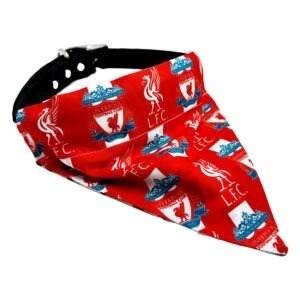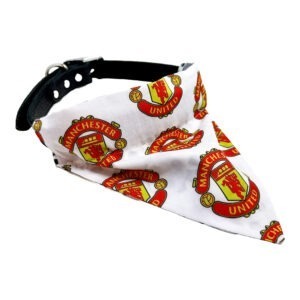Scottish Deerhounds are majestic and noble dogs known for their elegance and grace. These gentle giants are not only valued for their regal appearance but also for their loyal and affectionate nature. However, like all dog breeds, Scottish Deerhounds are prone to certain health issues that owners should be aware of. In this article, we will explore the common health issues that affect Scottish Deerhounds and provide insights into prevention, management, and overall care for these beloved dogs.
Understanding the Scottish Deerhound: An Overview
Caractéristiques physiques
Scottish Deerhounds are large, sight-hounds with a slender and athletic build. They possess a long, narrow head with a gentle expression, and their ears are set high and folded back. Their coat is rough and shaggy, providing protection in various weather conditions. With their impressive height and noble appearance, Scottish Deerhounds are often considered one of the tallest dog breeds.
Tempérament et comportement
Scottish Deerhounds are known for their calm and dignified nature. They are generally friendly and good-natured, making them excellent family companions. Despite their large size, they are typically gentle and patient with children and other pets. These dogs have a strong prey drive due to their hunting background, so it’s essential to ensure a safe and secure environment for them.
Some of our latest products...
-
Bandanas pour chiens
Bandana pour chien Liverpool FC
Liste séparée par des virgules des champs méta qui ne doivent pas être copiés. USD Choix des options Ce produit a plusieurs variantes. Les options peuvent être choisies sur la page de produit -
Bandanas pour chiens
Bandana pour chien Manchester City
Liste séparée par des virgules des champs méta qui ne doivent pas être copiés. USD Choix des options Ce produit a plusieurs variantes. Les options peuvent être choisies sur la page de produit -
Bandanas pour chiens
Bandana pour chien Manchester United
Liste séparée par des virgules des champs méta qui ne doivent pas être copiés. USD Choix des options Ce produit a plusieurs variantes. Les options peuvent être choisies sur la page de produit -
Colliers pour chiens
Collier pour chien Pittsburgh Steelers
$ 20.52 USD Choix des options Ce produit a plusieurs variantes. Les options peuvent être choisies sur la page de produit
History and Background
Le Deerhound écossais has a rich history dating back to ancient times. They were originally bred in Scotland for the purpose of deer hunting, particularly the red deer. Scottish nobles highly valued these hounds for their speed, agility, and tracking abilities. Over time, they gained recognition for their beauty and became sought-after show dogs and companions.
Common Health Issues in Scottish Deerhounds
While Scottish Deerhounds are generally healthy dogs, like any breed, they are prone to certain health issues. It’s crucial for owners to be aware of these conditions to provide appropriate care and early intervention when necessary.
Cardiomyopathy
Cardiomyopathy is a condition that affects the heart muscle, leading to an enlarged heart and reduced cardiac function. Scottish Deerhounds can be genetically predisposed to this condition, which can result in symptoms such as fatigue, difficulty breathing, and exercise intolerance. Regular veterinary check-ups, including heart screenings, can aid in early detection and management of this condition.
Gastric Torsion
Gastric torsion, also known as bloat, is a serious and potentially life-threatening condition. It occurs when the stomach twists, leading to a blockage of blood flow and the accumulation of gas. Scottish Deerhounds, particularly deep-chested breeds, are at a higher risk of developing gastric torsion. Common symptoms include restlessness, unproductive retching, abdominal distension, and rapid breathing. Immediate veterinary attention is crucial if gastric torsion is suspected.
Osteosarcoma
Osteosarcoma is a type of bone cancer that commonly affects Scottish Deerhounds. This aggressive cancer primarily affects the long bones, causing pain, lameness, and swelling. Early detection and timely treatment, such as surgery and chemotherapy, can improve the prognosis for affected dogs.
Hypothyroidism
Hypothyroidism occurs when the thyroid gland does not produce enough thyroid hormone. This condition can lead to various symptoms, including weight gain, lethargy, hair loss, and skin problems. Regular thyroid function testing can aid in early diagnosis and appropriate management through medication and dietary adjustments.
Neck Pain
Scottish Deerhounds are susceptible to neck pain, particularly due to conditions like cervical spondylomyelopathy, also known as wobbler syndrome. This condition involves the compression of the spinal cord in the neck area, resulting in pain, weakness, and difficulties with coordination. Conservative management approaches, such as medication and physical therapy, may be recommended, while severe cases may require surgical intervention.
Atopy
Atopy is a common allergic condition that affects Scottish Deerhounds. It manifests as itching, redness, and inflammation of the skin due to environmental allergens such as pollen, dust mites, or certain foods. Identifying and avoiding triggers, along with the use of antihistamines and other allergy management strategies, can help alleviate symptoms and improve the dog’s quality of life.
Cystinuria
Cystinuria is a hereditary condition characterized by the formation of bladder stones composed of the amino acid cystine. Scottish Deerhounds are among the breeds predisposed to this condition. Symptoms include blood in the urine, frequent urination, and discomfort during urination. Treatment may involve dietary modifications and medications to dissolve or prevent the formation of stones.
Prevention and Management of Health Issues
To ensure the overall well-being of Scottish Deerhounds and minimize the impact of health issues, proactive prevention and management strategies are crucial.
Regular Health Check-ups and Early Detection
Regular veterinary check-ups, including comprehensive physical examinations and appropriate screenings, play a vital role in detecting potential health issues early on. Timely intervention can significantly improve outcomes and quality of life for Scottish Deerhounds. It’s important to establish a good relationship with a trusted veterinarian who is familiar with the breed’s specific health needs.
Régime alimentaire et exercice
A balanced and nutritious diet is essential for maintaining the health of Scottish Deerhounds. High-quality dog food that meets their specific nutritional requirements should be provided. Additionally, proper exercise is crucial to keep these active dogs physically and mentally stimulated. Regular walks, playtime, and the opportunity to run in a secure area are beneficial for their overall well-being.
Specific Preventive Measures for Each Common Health Issue
For each common health issue, there are often specific preventive measures that can be taken. For example, maintaining a healthy weight, providing joint supplements, and avoiding excessive high-impact activities can help reduce the risk of osteosarcoma and joint-related problems. Consulting with a veterinarian is essential to develop an individualized preventive care plan based on the specific needs and health history of your Scottish Deerhound.
The Role of Diet and Exercise in Scottish Deerhound Health
A well-balanced diet tailored to the needs of Scottish Deerhounds is crucial for their overall health and longevity. A diet rich in high-quality proteins, healthy fats, and essential vitamins and minerals is recommended. It’s important to consult with a veterinarian to determine the appropriate feeding schedule and portion sizes based on the individual dog’s age, weight, and activity level.
Regular exercise is equally important for Scottish Deerhounds. While they have a calm demeanor indoors, they still require regular physical activity to maintain their muscle tone, cardiovascular health, and mental well-being. Long walks, free runs in a secure area, and interactive play sessions are all beneficial for keeping Scottish Deerhounds fit and happy.
Understanding the Costs of Veterinary Care for Scottish Deerhounds
Owning a Scottish Deerhound comes with various responsibilities, including the financial aspect of veterinary care. Regular veterinary check-ups, vaccinations, preventive medications, and emergency care all contribute to the overall cost of owning a dog. Additionally, the treatment of common health issues can incur substantial expenses, especially if surgeries or long-term management is required.
It’s important to budget for routine veterinary care and consider obtaining pet insurance to help offset potential costs. Planning ahead and being financially prepared can ensure that Scottish Deerhounds receive the necessary medical attention when needed without causing significant financial strain.
The Impact of Health Issues on Lifespan and Quality of Life
Common health issues can have a significant impact on the lifespan and quality of life of Scottish Deerhounds. Timely detection, proper management, and proactive preventive measures are crucial to ensure the best possible outcomes for these dogs.
Addressing health issues promptly can help extend a Scottish Deerhound’s lifespan. Regular veterinary check-ups, early intervention, appropriate medications, and lifestyle modifications can all contribute to a longer and healthier life.
Health issues can also affect the overall quality of life for Scottish Deerhounds. Pain, discomfort, or limitations caused by certain conditions can hinder their ability to enjoy daily activities. With proper care, management, and support, owners can strive to provide their Scottish Deerhounds with a comfortable and fulfilling life, ensuring they receive the love and attention they deserve.
Genetic Factors and Testing for Health Issues in Scottish Deerhounds
Genetics play a significant role in the health of Scottish Deerhounds. It’s important for responsible breeders to prioritize the selection of breeding stock with good overall health and genetic backgrounds. By breeding dogs with lower risks of certain health issues, it’s possible to reduce the incidence of these conditions in future generations.
Genetic testing is available for certain health issues that affect Scottish Deerhounds. These tests can help identify carriers of genetic mutations or determine the likelihood of passing on specific conditions to offspring. Testing can aid breeders in making informed decisions and assist owners in understanding potential health risks for their dogs.
Conclusion
In conclusion, understanding the common health issues in Scottish Deerhounds is essential for responsible ownership and proactive care. Regular veterinary check-ups, proper diet and exercise, early detection, and appropriate management are key elements in maintaining the health and well-being of these magnificent dogs. By being knowledgeable about their specific health needs, owners can provide the best possible care for their Scottish Deerhounds, ensuring a long, happy, and healthy life.
FAQ
What are the common health issues in Scottish Deerhounds?
Scottish Deerhounds can be prone to conditions like bloat, hip dysplasia, cardiomyopathy, hypothyroidism, and osteosarcoma.
How can I prevent bloat in my Scottish Deerhound?
To reduce the risk of bloat, feed smaller meals throughout the day, avoid vigorous exercise after meals, and use elevated food bowls.
What are the signs of hip dysplasia in Scottish Deerhounds?
Look out for symptoms like limping, difficulty in getting up or lying down, decreased activity, and a bunny hopping gait.
Can cardiomyopathy be detected early in Scottish Deerhounds?
Regular veterinary check-ups, including heart examinations and echocardiograms, can help detect and monitor signs of cardiomyopathy.
How common is osteosarcoma in Scottish Deerhounds?
Osteosarcoma, a type of bone cancer, is relatively common in Scottish Deerhounds. Prompt veterinary attention is crucial for early detection and treatment.





